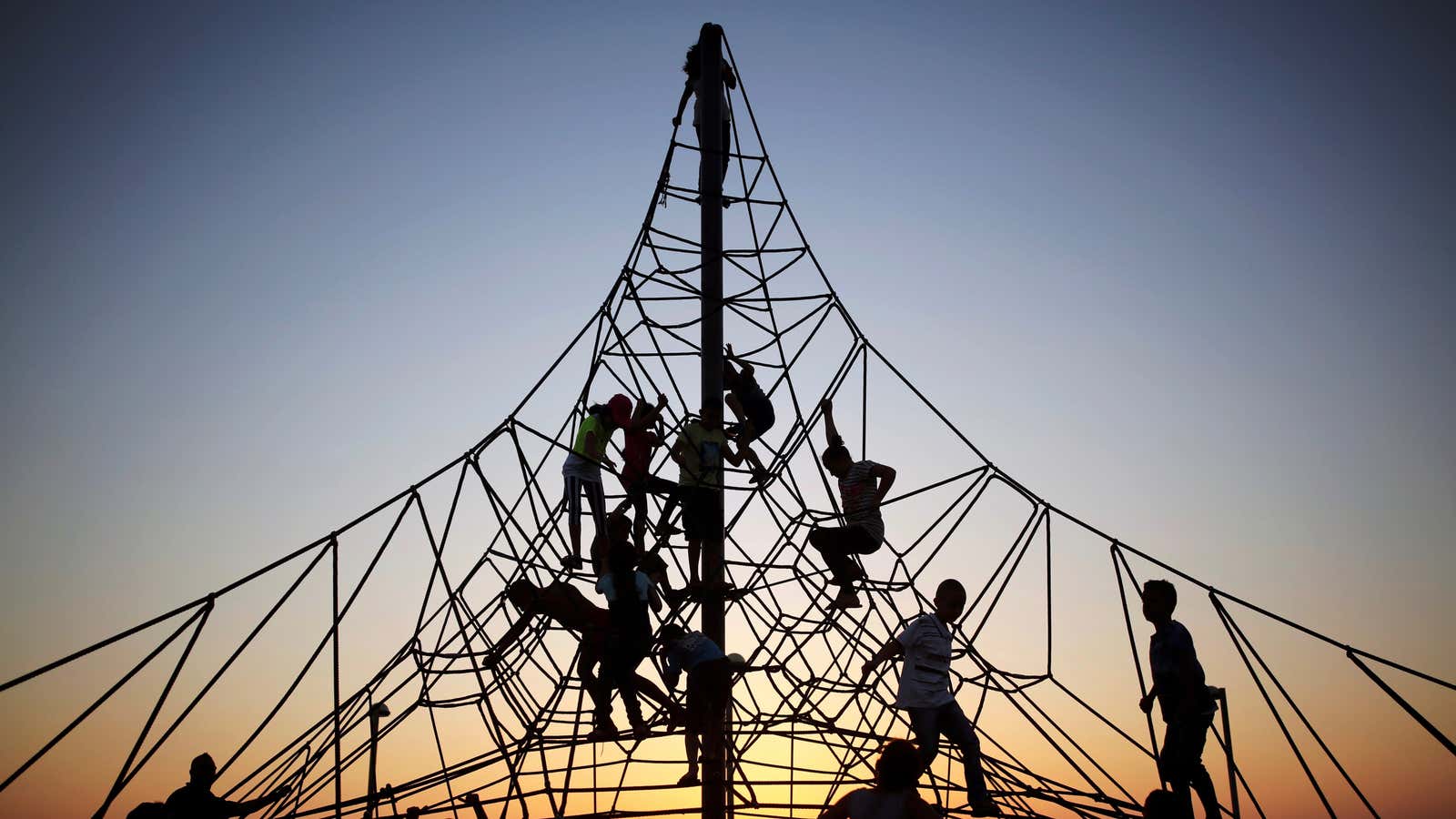You already know that life is messy. Try though we might to impose order, there is no app or hack or approach to your to-do list that will just make everything go smoothly. Still, you can change how you deal with the inevitable imperfection—and this perceptual shift could transform your existence, turning you from a failing control freak into someone who goes with the flow.
In her new book Chutzpah, Why Israel is a Hub of Innovation and Entrepreneurship, Inbal Arieli, an Israeli entrepreneur who was an officer in an elite Israeli army intelligence unit, argues that the small nation ranks third in the World Economic Forum Innovation Rating and attracts more venture capital per capita than any other country on the planet because people there are trained at an early age to play with balagan.
Balagan is the Russian-derived Hebrew word for “mess.” It applies to anything from a disorderly desk to geopolitical woes. Israelis are very familiar with this concept and have cause to use the word often.
It’s counterintuitive, but Arieli makes the case for messiness as a source of creativity and innovation, and there is scientific evidence to support her contention that there’s something special about the Israeli upbringing, specifically that it begins in what are essentially just junkyards.
While children in schools might normally be playing with toys, in Israel, little kids fool around with junk such as tractor parts, pots and pans, paint cans, old clothes, barrels, ladders, and furniture in disrepair. “Aesthetically pleasing it is not,” Arieli admits, but the kids are engrossed by the objects and use them in unusual ways, turning an old microwave into a space shuttle dashboard, for example.
Arieli understands that for outsiders looking in, the junkyard just looks like a liability, a lawsuit waiting to happen. But in fact, this unstructured and unconventional approach to play—which was first devised by an Israeli educator on a kibbutz in the 1950s out of necessity because there were no traditional toys around—was long ago adopted nationwide.
It’s precisely because kids face danger and chaos when “set loose among inappropriate objects” that they organically develop the skills necessary for living spontaneously and for entrepreneurship, including creativity, risk management, independence, dealing with ambiguity, conflict resolution, and teamwork. Later in life, these initial engagements teach Israelis to thrive in a state of chaos. Arieli writes:
Playing with Junk is not a teaching tutorial. It is a philosophical approach to the education of children, one that enables them to test their abilities, learn to cooperate with others, be creative, and practice life as an adult. Israeli children are not taught to be entrepreneurs but, rather, they are encouraged to develop skills that can later be identified as skills among successful entrepreneurs.
Arieli’s conclusion is based not only on her experience as an Israeli child and later as a mother of three, or on her years working in the country’s booming tech sector, but also on scientific studies that examine the effect of messy environments on the mind. For example, researchers have found that working in a very orderly space encourages conventional production whereas messier environments seem to inspire creativity. A messy space seems to also force people to come up with simple solutions (pdf) to problems, as if streamlining their thoughts.
What Arieli is suggesting is in line with much mindfulness training and the observations of Zen masters. We have to get comfortable with messiness, emotional or physical, instead of constantly resisting it, and then we’re able to reshape the situation.
Because we can’t eliminate ambiguity, unknowns, curveballs, and chaos, our best option is to learn to work with these things and view the opportunities they hold. Arieli herself was part of a tech startup that failed before she co-founded Synthesis, a leadership and coaching company. While the initial failure was disappointing, many of the people who worked on that startup learned from what went wrong and have since spawned successful enterprises of their own.
Arieli believes you don’t have to necessarily grow up playing with junk to embrace the benefits of balagan. You just have to start seeing the inevitable messes as natural rather than problematic and get comfortable operating in situations that aren’t perfectly neat. The comfort comes from knowing that disorder doesn’t mean disaster—it may just be the first step before a breakthrough.
So, next time things in your world are getting hairy, just note that the balagan has begun, breathe deep, and know you can handle it. After all, dealing with junk is child’s play, and you are an evolved adult who has the wherewithal to manage messiness.
